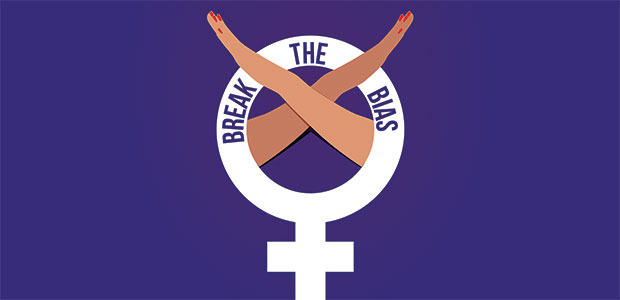
How do we Break the Bias in higher-level jobs?
When it comes to the battle on gender equality, we can certainly see some improvement, however, there is still a lot to be done. Whilst we may be encouraging the younger generation into more STEM and subjects they weren’t considering before, we need to make sure this is reflected all the way up – and into leadership positions.
How do we then ensure we retain the equality we have achieved and this translates to opportunities later in life?
This year’s International Women’s Day theme, Break The Bias, suggests that when it comes to gender there is still so much stigma, bias and stereotyping happening in the workplace and beyond – consciously and subconsciously.
So, how do we change the systems to give people opportunities? It starts with attitude. If we look at the attitudinal problems that we need to address, they are not going to go away unless we force a change. A global survey of more than 20,000 publicly traded companies by the Peterson Institute for International Economics found that the number of women holding executive positions in corporate management correlated with increased profitability.
Further to this, Marc Benioff, Co-CEO, and Co-Founder of Salesforce back in 2015 was confronted by some of his staff about a gender pay gap within the company. To his shock and disbelief after conducting some research the results were hard to swallow. At entry-level men and women are equal with education and knowledge, but when moving up in business - men were always ahead of women.
Unfortunately, most of the time, it is unconscious bias and men truly believe they are not showing unconscious bias signs, but the behaviour and stereotyping are very much alive and well. However, a McKinsey & Company study showed that companies with more gender diversity on their executive teams were 21% more likely to outperform less diverse teams in terms of profitability, suggesting it is actually far more damaging to show unconscious bias.
This is about equality, diversity and working together, and therefore pivoting what we do and how we work – you cannot have these conversations without men. Stephanie Boyce, President at The Law Society at a recent event explained, life, society and importantly the workplace needs a variety of people, gender, culture and knowledge. “What we’re seeing is a lot of entry-level women doing quite well, but as you get higher up there is an absence. One of the starting points will involve highlighting where we need improvement, and men are needed here for us to be able to progress.”
Men can more often than not be allies and aid women in both their confidence and careers. Clare Barclay, CEO of Microsoft shared that some of the men she has worked with throughout her journey have given her confidence. “There have been male allies and sponsors who have pushed me, and who have been so helpful to me.”
Diversity in the tech industry is especially low in terms of numbers, most women you speak to have a story to tell from a number of different companies. However, Clare believes there is a movement of change and opportunity coming. “As the younger generation start to come through, it will become a lot more equal as they will not accept anything less. There is a sense of hope.”
It is the responsibility of everyone, but especially leaders to listen. There is a lot of noise and talk around equality, but sometimes not always a lot of action to come with this. If nothing does come of it, then what is the point of all the effort you have put in for equality and diversity?
This is aided with visibility, if people can see the change they are more likely to believe it. We are all driven to change, especially change for good, we want to achieve making a difference. We need to break the bias through our determination, resilience and never giving up.
At last year’s accelerateHER event as part of London Tech Week, former US Secretary of State, Hilary Rodham Clinton was part of a discussion on leadership, to which she stated you need to be constantly resilient, because you will be knocked down, but you just have to keep battling. She said: “Women are always more unsure, which is shown in the number of women who admit they have suffered from imposter syndrome. I call it the ‘imperfect gene’ – always unsure if you are ready and if you are worthy.”
With everything the former US Secretary of State had been through in her career, she said no matter what hurdles and barriers you face when trying to take yourself further up just make sure you don’t give up. It is important to keep going no matter what the setbacks and obstacles.
The most vital takeaway is being prepared. Hilary explained that life is full of uncertainties, as you have no idea what may be in store for you. “Life is unpredictable, and I’d be surprised if you knew what you’d be doing in ten years. Just enjoy the ride.”

